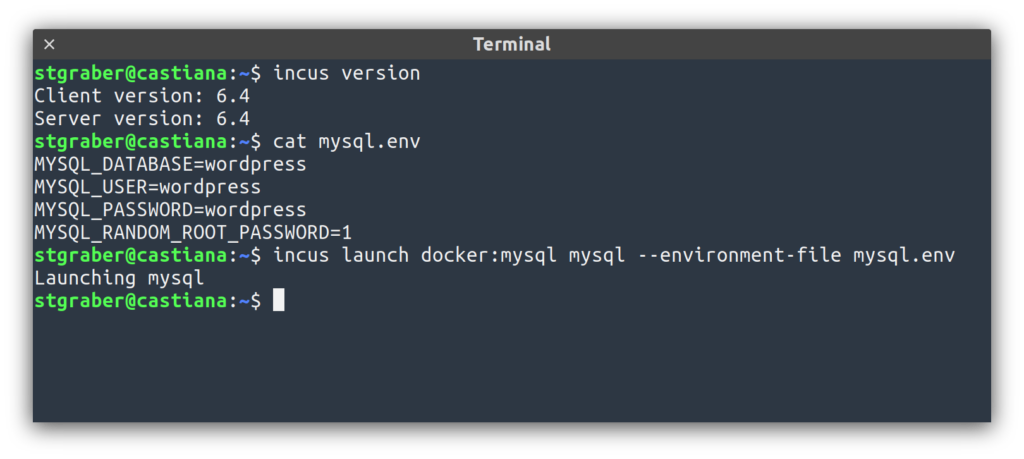A slightly less busy release this time, mostly due to traveling to the Linux Plumbers Conference and associated events a few weeks ago.
But still far from a boring release. On top of the usual bugfix and performance improvements, we’re getting a number of nice additions for virtual machines, improved clustered LVM support, improvements to incus-migrate and a number of new network features!

The highlights for this release are:
- OS info for virtual machines
- Console history for virtual machines
- Ability to create clustered LVM volume groups
- QCOW2 and VMDK support in incus-migrate
- Configurable macvlan mode
- Load-balancer health information
- External interfaces in OVN networks
- Parallel cluster evacuation/restoration
The full announcement and changelog can be found here.
And for those who prefer videos, here’s the release overview video:
You can take the latest release of Incus up for a spin through our online demo service at: https://linuxcontainers.org/incus/try-it/
And as always, my company is offering commercial support on Incus, ranging from by-the-hour support contracts to one-off services on things like initial migration from LXD, review of your deployment to squeeze the most out of Incus or even feature sponsorship. You’ll find all details of that here: https://zabbly.com/incus
Donations towards my work on this and other open source projects is also always appreciated, you can find me on Github Sponsors, Patreon and Ko-fi.
Enjoy!




 Github
Github Twitter
Twitter LinkedIn
LinkedIn Mastodon
Mastodon